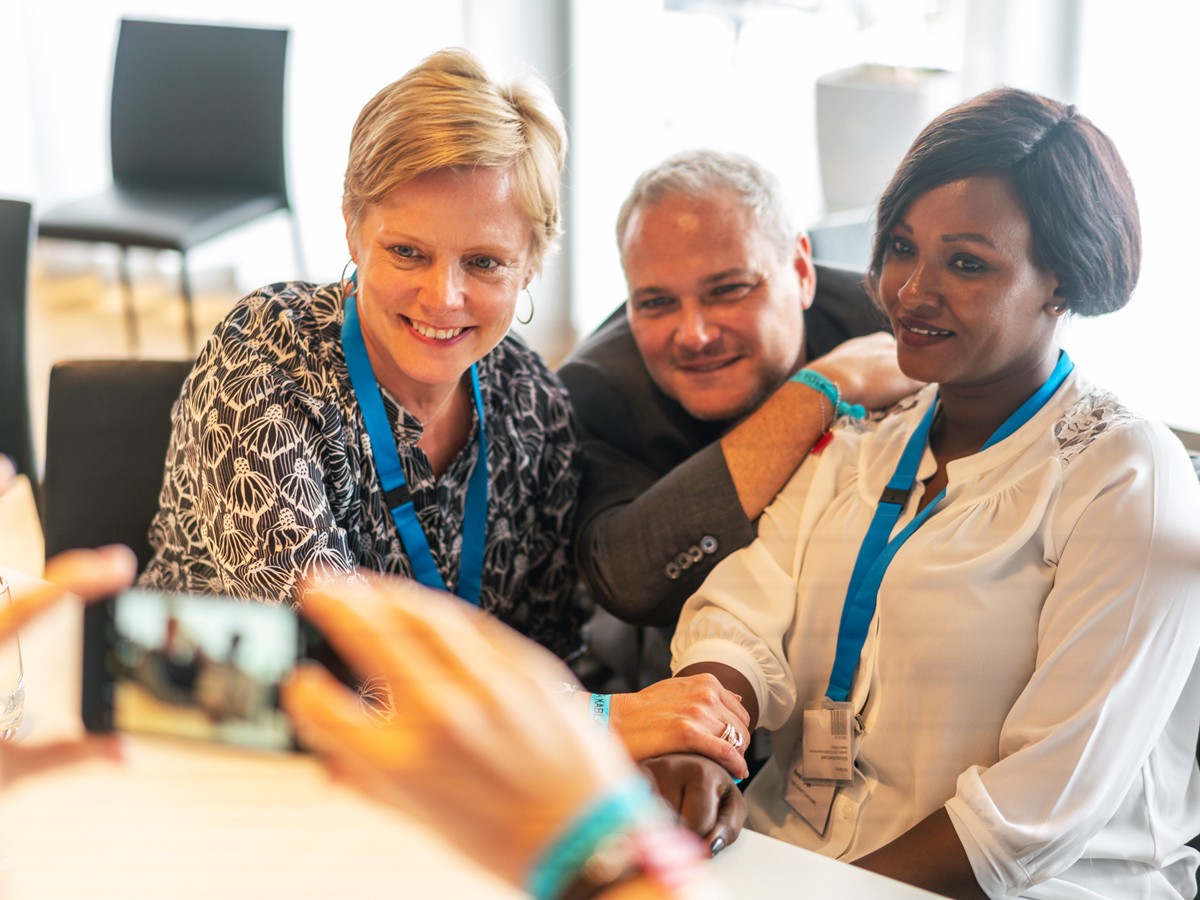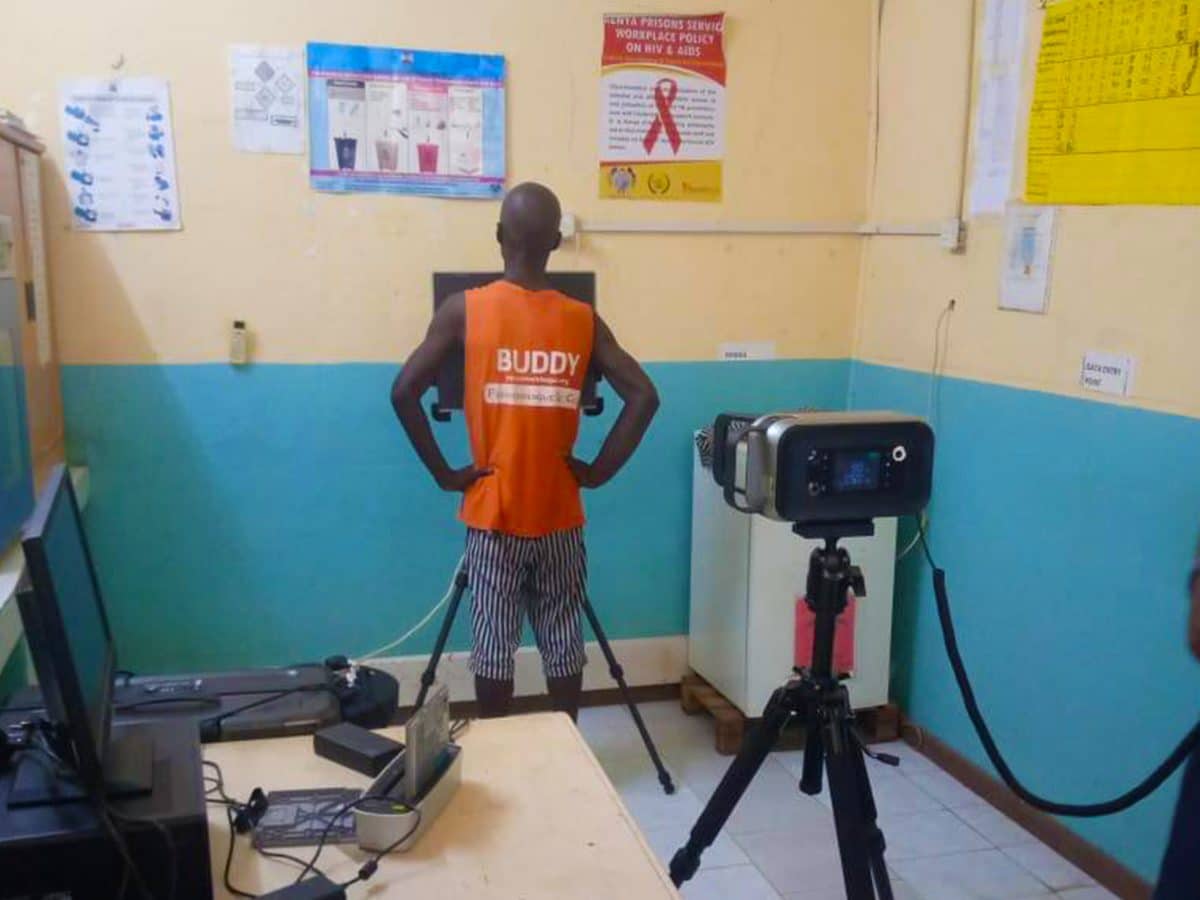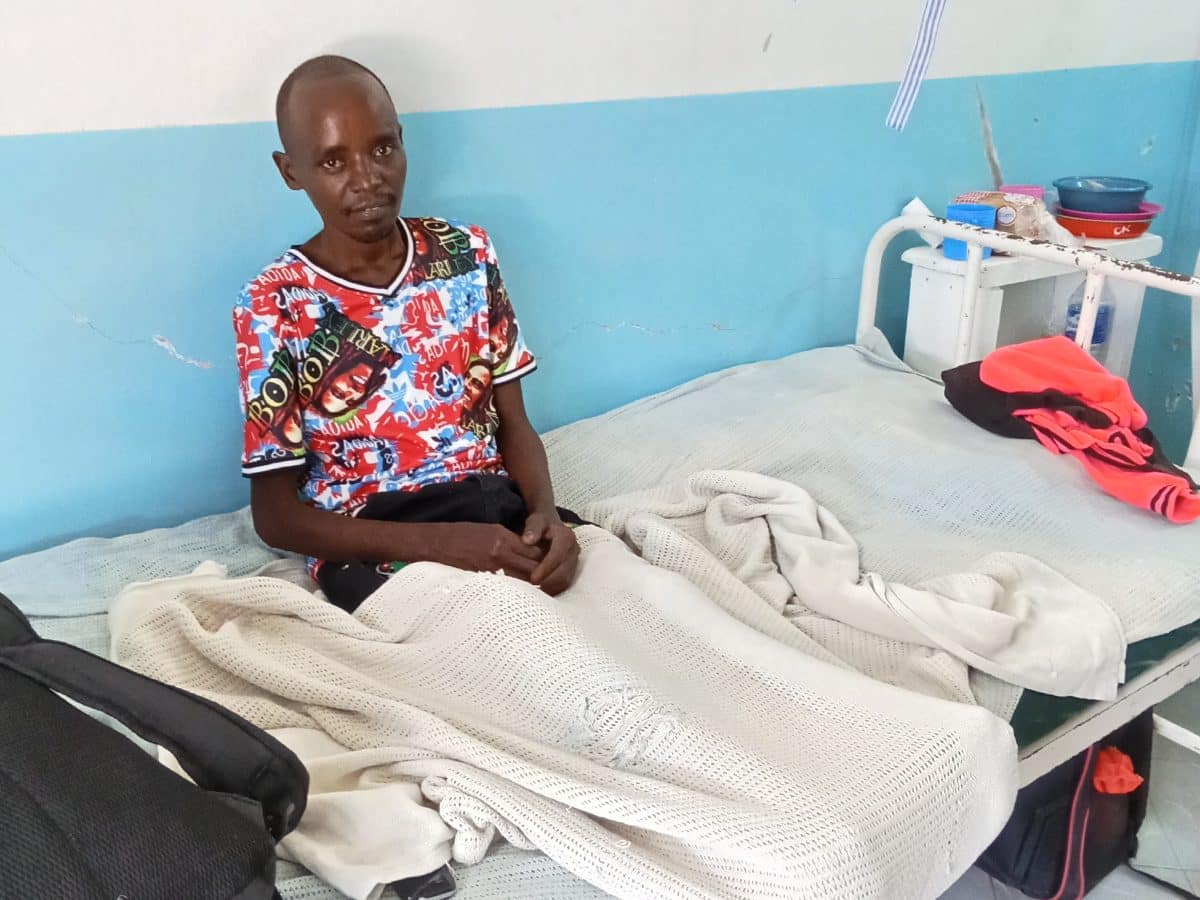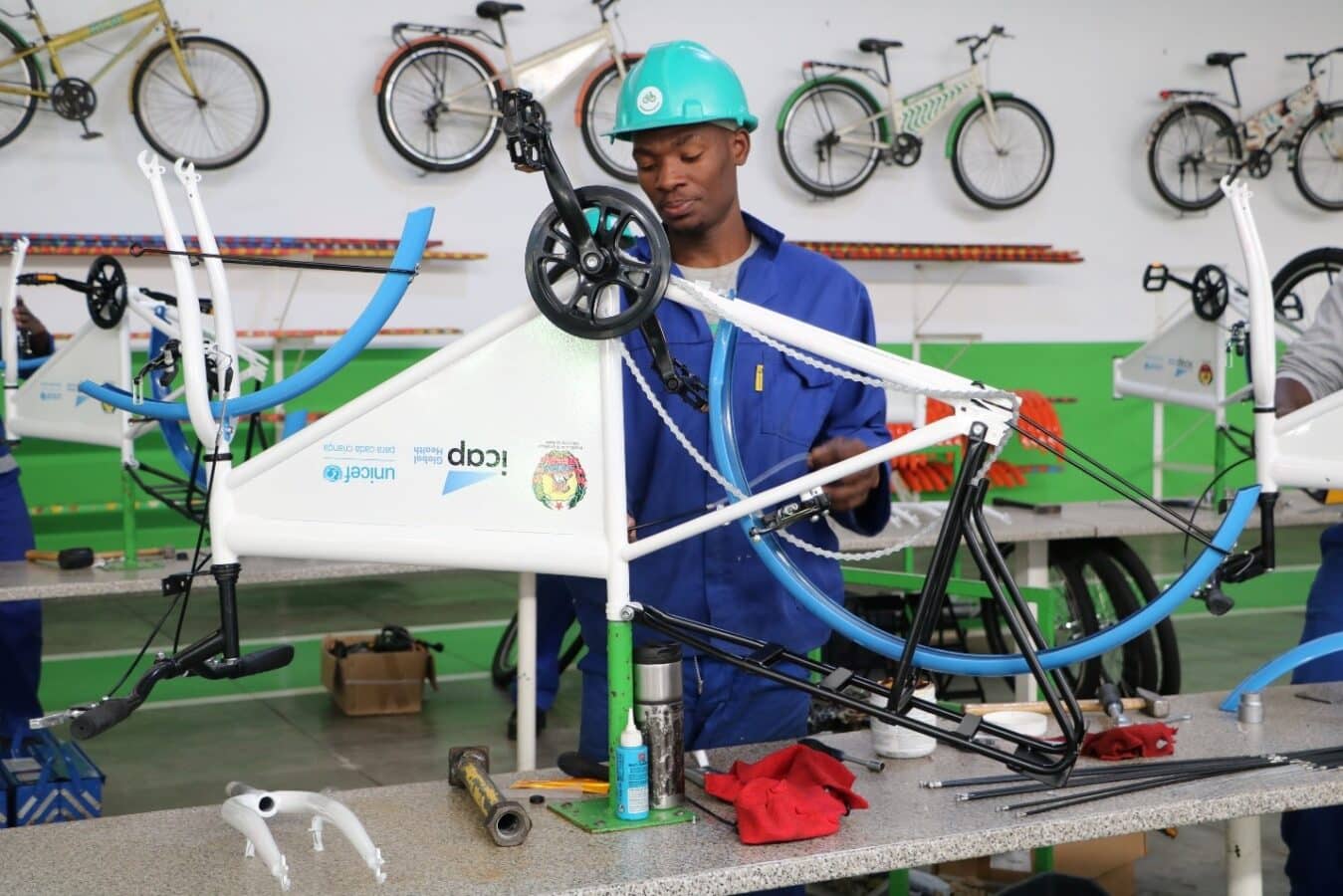As the linkage and retention officer for ICAP’s community HIV outreach program in Tanzania’s Kagera Region, known locally as the FIKIA project, Anna Kihiyo has deep knowledge of her community’s health needs and the challenges in accessing care.
“Here in Kagera, FIKIA is trying to empower women to be proactive and protect their health, with condoms and PrEP (pre-exposure prophylaxis) to protect against HIV. There are other big health issues to tackle as well, such as cervical cancer screening and family planning, but women are busy and cannot easily come to health facilities for multiple separate visits. So we are rolling together as many services as possible and taking them out into the community in order to reach as many people as we can.”
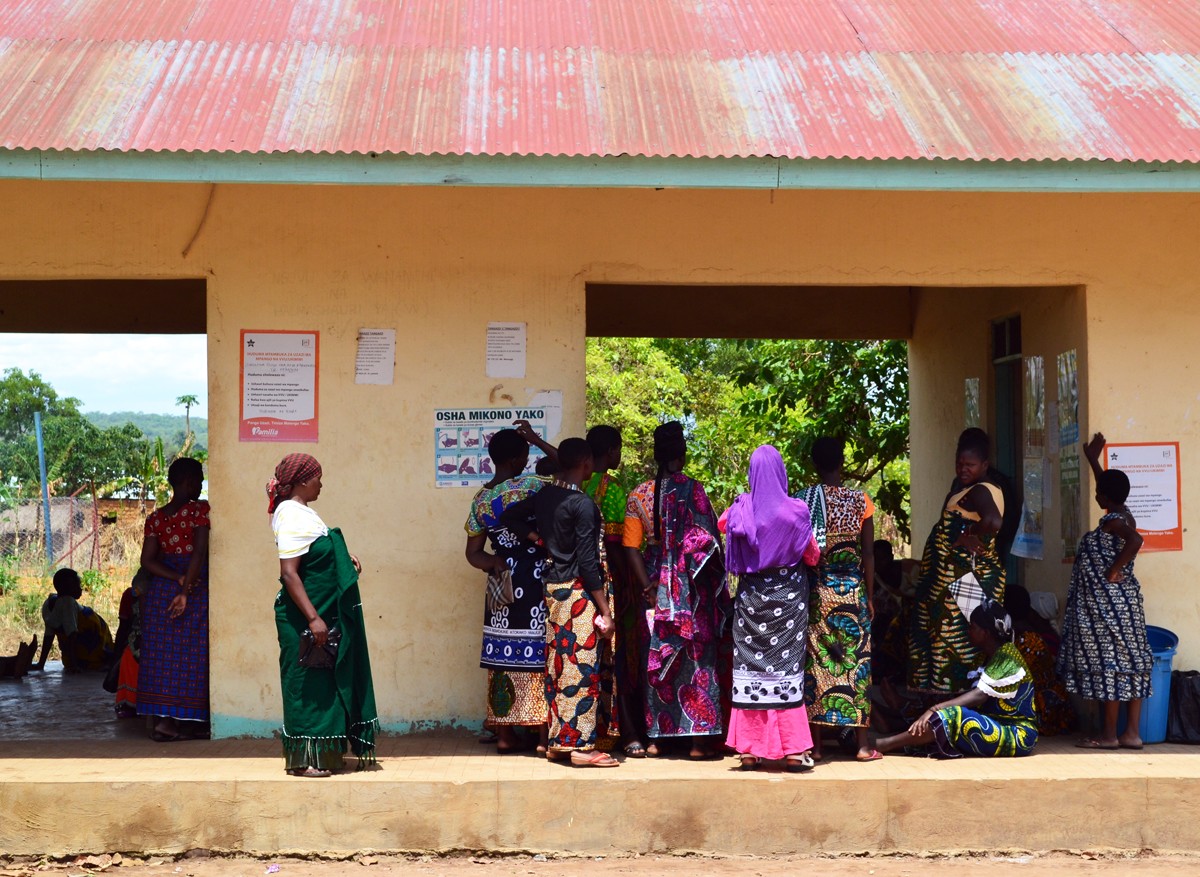
Women living with HIV are at higher risk for developing cervical cancer because their immune systems are not able to fight infections of human papillomavirus (HPV), the virus that causes cervical cancer. In areas where access to health facilities may be limited due to cost or distance, and where cervical cancer screening is not routine, abnormal cervical cells may not be spotted until the cancer is at an advanced stage—leading to increased death rates from this highly preventable disease.
In order to find new ways of integrating and improving care, ICAP participates in a collaborative known as NJIA (meaning “the way” in Kiswahili), which brings together frontline healthcare professionals and ICAP staff, like Kihiyo from Tanzania, with executives from F. Hoffmann-la Roche (Roche) for successive cycles of cooperative leadership training and program innovation. The trainings are organized on the ground by the UK-based Pepal Foundation with trainers from McBride & Lucius, a management consulting firm based in Massachusetts, and Roche.
“Everyone arrives at the training with a shared goal: to increase access to cervical cancer services and save women’s lives,” said Aruna Dahal, program manager at Pepal. “After the training, the participants from Tanzania feel more confident in their ability to advocate and lead, and the international participants gain an understanding of the challenges and constraints—and also the opportunities—of operating within a resource-limited context.”
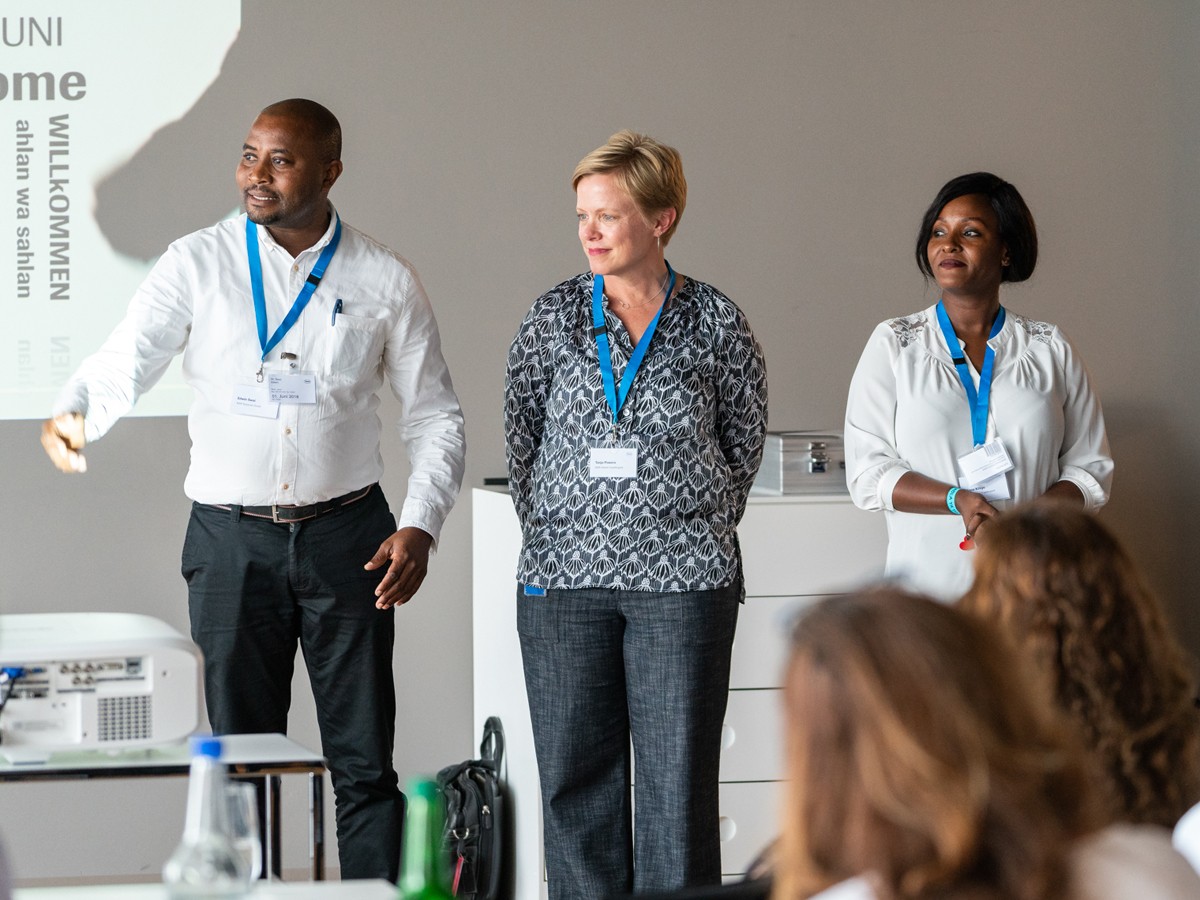
Leveraging its longstanding presence and deep relationships in Tanzania, ICAP is able to provide guidance and technical support so that the innovations generated during the NJIA cycles align with guidelines and priorities as set out by the Ministry of Health, Community Development, Gender, Elderly, and Children and implemented by the Regional Health Management Teams. ICAP is also able to help identify opportunities to pilot innovations and scale up successful ideas through the FIKIA project, which is supported by the U.S. Centers for Disease Control and Prevention (CDC) with funding from the President’s Emergency Plan for AIDS Relief (PEPFAR).
“The bedrock of the NJIA collaborative is a shared belief in the importance of frontline health worker leadership for sustainable and long-term improvements in health outcomes,” Kihiyo said. “My participation in the program was life-changing—I discovered the power of ‘we,’ of working together with a diverse group of people towards a common goal, and how good leadership inspires all team members to achieve this goal.”
One example of leadership in action is the recent integration of cervical cancer prevention and treatment services into the ICAP-coordinated SS Jubilee Boat initiative, which provides essential health care to vulnerable island communities living on Lake Victoria. The idea for this integration was driven by three frontline health care professionals who participated in the most recent NJIA program. In the Jubilee’s first combined excursion, 712 women were screened by four providers over the course of ten days, and 30 women were treated for suspected pre-cancerous lesions.
Cervical cancer screening and treatment took to the water last week in Lake Victoria, Tanzania. Thanks to partners @ICAP_ColumbiaU and NGO MDH, participants in our leadership program joined the Jubilee Hope to integrate cervical cancer into health services to island dwellers! pic.twitter.com/P8ZsNXpxzJ
— Pepal (@PepalFoundation) January 25, 2019
But not every innovation is so large-scale: one of the most creative additions to ICAP’s ongoing programs was Kiyiho’s team’s idea to distribute hairbands with cervical cancer health messaging to women who receive screening. The idea is that the colorful hairbands will be an incentive for other women to come for screening, and will act as a conversation-starter in local communities about the pressing disease burden. The team plans to distribute approximately 9,000 hairbands beginning this month, with messaging designed by Kihiyo and her Roche colleagues to help destigmatize conversations around cervical cancer.
“The hairbands will help sensitize women, and I think they will be very popular!” said Anicia Kamugisha, a FIKIA community outreach volunteer who was in the same NJIA cohort team as Kihiyo. “They will be much more effective than usual fliers, and will help us in our work to link women in the communities to essential health care.”
Leadership training for health workers can improve health outcomes for patients! Check out the incredible impact our training in Tanzania has had on cervical cancer for women in Kagera region. Thank you to our partners @ICAP_ColumbiaU, MoHCDGEC and @Roche #leadership pic.twitter.com/iDKUI1WtKe
— Pepal (@PepalFoundation) February 5, 2019
NJIA has been active in six out of the seven districts in Kagera since 2016, and here the number of women screened is 300-500% higher than in the three years before NJIA, compared to a 137% increase in the control district. Regional Medical Officer Marco Mbata, MD, who oversees the implementation of all health care activities in the region, believes that NJIA has “improved efficiencies and catalyzed innovation to improve health outcomes in the region, particularly in cervical cancer prevention.”
“It’s important to me to see NJIA and FIKIA continue to grow and see success,” Kihiyo said. “I feel like I changed a lot through the program, and I love staying in contact with my fellow alumni. We are always excited to see what the new cohorts are going to come up with, and to support them as we work together to improve health in Kagera.”
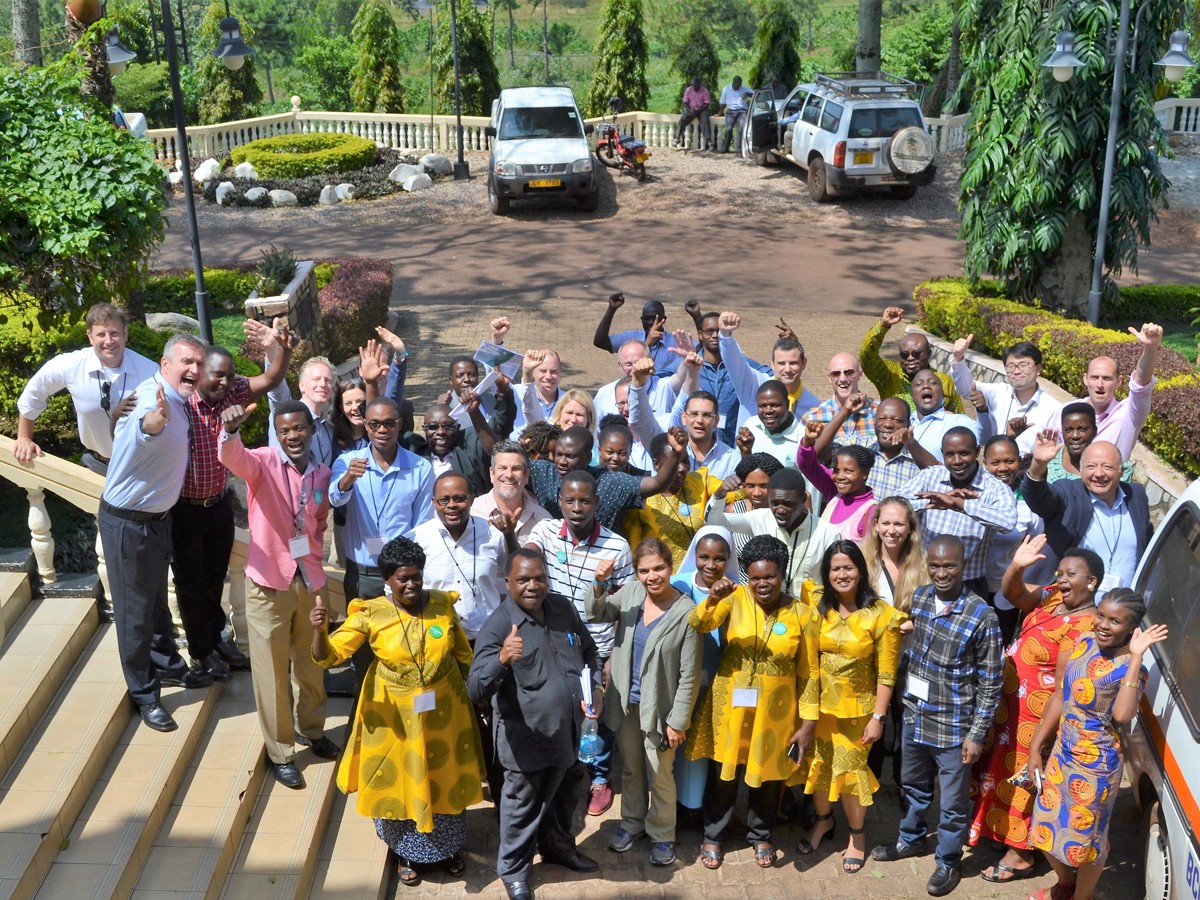
A global health leader since 2003, ICAP was founded at Columbia University with one overarching goal: to improve the health of families and communities. Together with its partners—ministries of health, large multilaterals, health care providers, and patients—ICAP strives for a world where health is available to all. To date, ICAP has addressed major public health challenges and the needs of local health systems through 6,000 sites across 30 countries. For more information about ICAP, visit: icap.columbia.edu
Pepal brings together global corporations, local governments and NGOs to develop leaders and find practical solutions to challenging social issues. (www.pepal.org)
Photos courtesy of Pepal. Header image: Anna Kihiyo (right) with NJIA colleagues. Photo 2: women wait outside the mother’s clinic at Nyakanazi Health Center in Biharamulo District. Photo 3: Anna Kihiyo (right) with NJIA colleagues. Photo 4: NJIA Cohort 6, June 2018.


